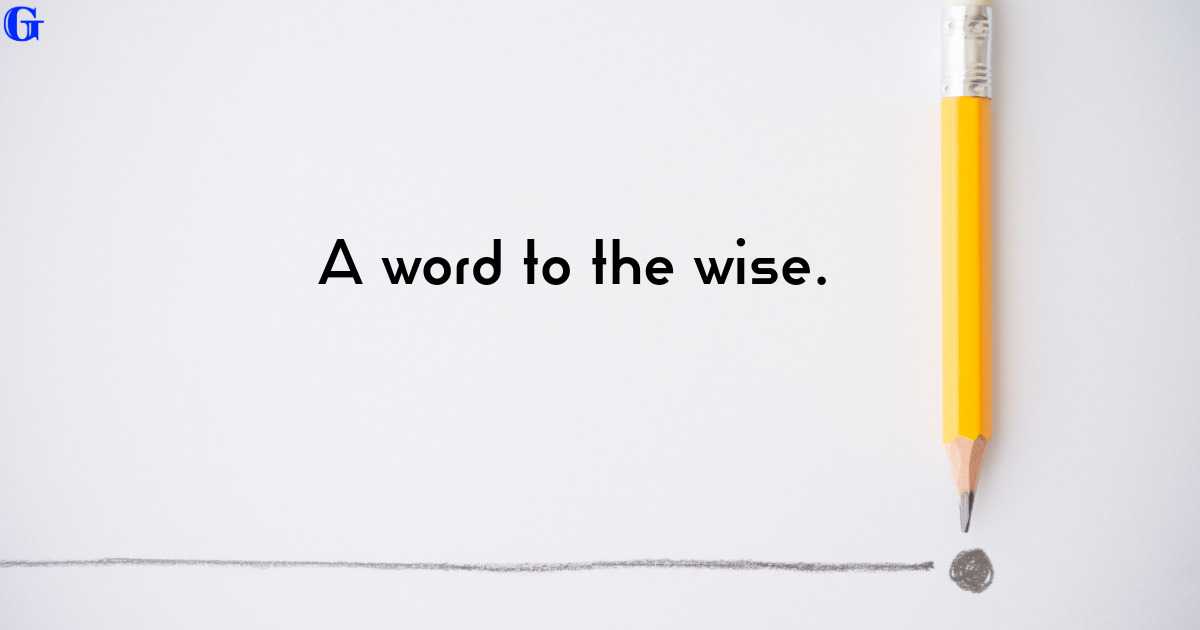Easy Tips for Choosing the Right Words in Essays in 2025

Table of Contents
Choosing the Right Words in Essays – A Guide to Precise and Effective Writing
Introduction
The Importance of Choosing the Right Words in Essay Writing
Imagine painting a masterpiece. You have the canvas, the colors, and the vision. But without the right brushstrokes, the colors blend into an indistinguishable mess. Similarly, in essay writing, words are your brushstrokes. They shape how your ideas are perceived, how your arguments are understood, and how your tone resonates with your audience.
Choosing the right words is not merely about stringing sentences together; it’s about crafting a piece of writing that is both impactful and engaging. As the renowned American writer Ernest Hemingway once said, “The difference between the almost right word and the right word is really a large matter—’tis the difference between the lightning bug and the lightning.”

Why Choosing the Right Words Matters in Essays
The Role of Choosing the Right Words in Effective Communication
Words are more than just symbols; they are instruments of persuasion and clarity. They have the power to evoke emotions, paint vivid pictures, and convince readers to accept your point of view.
Let’s consider an example:
- Vague: “The character experienced difficulties.”
- Precise: “The protagonist grappled with crippling anxiety and a profound sense of isolation, his world crumbling around him.”
The second sentence, with its carefully chosen words, paints a much more vivid and impactful picture of the character’s struggles. It goes beyond simply stating the fact and delves into the emotional and psychological depths of the character’s experience.
Academic Success and Choosing the Right Words
In the academic world, precise language is not just about sounding sophisticated; it’s crucial for demonstrating a deep understanding of the subject matter. Professors and examiners value essays that exhibit a strong command of language and a clear, concise articulation of ideas.
Using precise vocabulary not only enhances your argument but also establishes your credibility as a scholar. For instance, instead of saying “The theory is important,” you could say, “The theory provides a pivotal framework for understanding…” This subtle shift in word choice demonstrates a nuanced understanding of the theory’s significance.
Common Mistakes When Choosing the Right Words in Essays
Vague and Weak Words That Weaken Your Writing
One of the most common pitfalls in essay writing is the overuse of vague and weak words. These words lack specificity and fail to convey your ideas effectively, leaving your reader feeling confused or unsatisfied.
Overused General Words to Avoid in Essays
- Examples: “good,” “bad,” “things,” “stuff,” “important,” “interesting”
- Alternative Stronger Words:
- Instead of “good,” use “beneficial,” “effective,” “insightful,” “rewarding”
- Instead of “bad,” use “detrimental,” “harmful,” “inadequate,” “counterproductive”
- Instead of “things,” use “factors,” “elements,” “components,” “phenomena”
- Instead of “stuff,” use “materials,” “possessions,” “objects,” “substances”
For instance, instead of saying, “The book had good ideas,” you could write, “The book presented novel and thought-provoking concepts that challenged conventional thinking.”
Read about how to write a scholarship essay on our blog.
Wordiness and Redundancy in Choosing the Right Words
Wordiness is another common issue that can obscure your message and make your writing tedious to read. Unnecessary words clutter your sentences, distracting the reader and hindering the flow of your argument.
How to Identify Unnecessary Words in Your Essay
- Wordy phrase: “At this point in time”
- Concise alternative: “Now”
Common Wordy Phrases and Their Concise Alternatives
- “Due to the fact that” → “Because”
- “In order to” → “To”
- “Despite the fact that” → “Although”
- “In spite of the fact that” → “Despite”
- “A large number of” → “Many”
- “For the purpose of” → “To”
Misused Words and Confusing Word Pairs in Essays
Misusing words or confusing similar-sounding terms can undermine your credibility and detract from the professionalism of your writing.
Commonly Confused Words When Choosing the Right Words
- “Effect” vs. “Affect”:
- Effect: (noun) The result or consequence of something.
- Example: “The earthquake had a devastating effect on the city.”
- Affect: (verb) To influence or impact something.
- Example: “The earthquake affected thousands of people.”
- Effect: (noun) The result or consequence of something.
- “Compliment” vs. “Complement”:
- Compliment: (noun/verb) To praise or express admiration.
- Example: “She complimented him on his presentation.”
- Complement: (noun/verb) To complete or enhance something.
- Example: “The red wine complemented the flavor of the steak.”
- Compliment: (noun/verb) To praise or express admiration.
- “Then” vs. “Than”:
- Then: Refers to time or sequence.
- Example: “First, I went to the store, and then I went home.”
- Than: Used for comparison.
- Example: “I prefer coffee than tea.”
- Then: Refers to time or sequence.
Slang and Informal Language – A Mistake in Choosing the Right Words
While slang might be appropriate in casual conversations with friends, it has no place in formal academic writing. Using informal language can make your essay appear unprofessional and undermine your credibility.
Why Slang is Not Suitable for Academic Writing
- Examples:
- “Gonna” vs. “Going to”
- “Wanna” vs. “Want to”
- “Gotta” vs. “Have to”
- “Cuz” vs. “Because”
Academic writing requires a formal and objective tone. Slang and informal language detract from this tone and can make your arguments seem less persuasive and less credible to your audience.
Repetitive Words and Phrases to Avoid
Overusing the same words or phrases throughout your essay can make your writing sound monotonous and repetitive. This can distract the reader and weaken the impact of your arguments.
How Repetition Weakens Your Argument
- Example: Instead of repeatedly using “thus,” try using variations like “therefore,” “hence,” “consequently,” “as a result,” “in conclusion,” or “subsequently.”
Varying your word choice not only makes your writing more engaging but also demonstrates a richer vocabulary and a deeper understanding of the nuances of language.

How to Choose the Right Words for Your Essay
Best Strategies for Choosing the Right Words in Essays
Be Clear and Concise When Choosing the Right Words
Avoid using overly complex or obscure words when simpler ones will suffice. The goal is to convey your ideas with clarity and precision, not to impress your reader with your vocabulary. If you can express an idea with a simpler word, choose that word.
Use Active Voice Instead of Passive Voice for Stronger Essays
- Passive: “The essay was written by the student.”
- Active: “The student wrote the essay.”
Active voice is generally more direct, engaging, and easier to read. It emphasizes the actor performing the action, making your writing more dynamic and impactful.
Avoid Jargon Unless Necessary in Academic Writing
Jargon refers to specialized language used within a particular field or profession. While some jargon is unavoidable in highly specialized fields, try to use accessible language whenever possible. If you must use technical terms, explain them clearly for the reader.
Use Strong Verbs and Specific Nouns When Choosing the Right Words
- Weak: “The author shows the importance of education.”
- Strong: “The author illustrates the transformative power of education.”
- Strong: “The author argues that education is crucial for…”
- Strong: “The author demonstrates the profound impact of education on…”
Similarly, instead of using vague nouns like “things” or “stuff,” use specific nouns that accurately reflect the subject matter.
- Weak: “The experiment produced good results.”
- Strong: “The experiment yielded significant and statistically significant results.”
- Strong: “The experiment demonstrated a marked improvement in…”
Consider the Tone and Audience When Choosing the Right Words
The appropriate word choices will vary depending on the tone and purpose of your essay.
- Formal essays: Require a formal and objective tone. Avoid slang, contractions, and overly casual language.
- Informal essays: Allow for a more personal and conversational tone, but still maintain a level of professionalism.
- Persuasive essays: Require strong, persuasive language that effectively convinces the reader of your argument.
- Descriptive essays: Benefit from vivid, sensory language that helps the reader visualize the scene or experience.
Always consider your audience and tailor your word choices accordingly.
See topics for an argumentative essay on our blog.
How to Expand and Improve Your Vocabulary for Choosing the Right Words
Building a Stronger Vocabulary to Improve Word Choice
Reading Academic Papers and Literature for Better Word Selection
Reading widely exposes you to a rich variety of vocabulary and writing styles. Pay close attention to how authors use words to convey their ideas effectively.
- Analyze how authors use specific words to create different effects: Do they use figurative language like metaphors and similes? Do they employ strong verbs and vivid adjectives to paint a picture? How do they use word choice to establish tone and mood?
- Look up unfamiliar words: Use a dictionary to understand the meaning and nuances of new words you encounter.
- Read texts from diverse fields: Explore different disciplines like history, philosophy, literature, and science to broaden your vocabulary and gain exposure to new ways of thinking and expressing ideas.
Using a Thesaurus Wisely When Choosing the Right Words
A thesaurus can be a valuable tool for finding synonyms for overused words. However, use it with caution. Not all synonyms are created equal.
- Consider the nuances of meaning: Some synonyms may have slightly different connotations or shades of meaning. Choose the word that most accurately reflects the specific meaning you want to convey.
- Check the context: Ensure that the synonym you choose fits the context of your sentence and maintains the overall tone and style of your writing.
Learning Words in Context to Avoid Misuse
Don’t just memorize lists of words. Learn new words by encountering them in context, such as in sentences or paragraphs. This will help you understand their nuances and how to use them appropriately.
- Read widely: Pay attention to how words are used in different contexts.
- Keep a vocabulary journal: Record new words you encounter, along with their definitions and example sentences.
- Use the new words in your own writing: This will help solidify your understanding and improve your ability to use them effectively.
Practicing Paraphrasing and Rewriting Sentences
Paraphrasing and rewriting sentences is an excellent exercise for improving your word choice.
- Choose a sentence or paragraph from your own writing or from a reading.
- Try to rewrite it using different words while maintaining the original meaning.
- Experiment with different word choices and sentence structures.
- Evaluate the impact of your changes: Does the revised version convey the same meaning more effectively? Is it more concise and clear? Does it sound more sophisticated and engaging?
Examples of Choosing the Right Words in Essays
Real-World Examples of Strong vs. Weak Word Choices
- Weak: “The character was sad.”
- Strong: “The protagonist was consumed by a profound melancholia, his joy extinguished by the tragic events that unfolded.”
- Weak: “The experiment had good results.”
- Strong: “The experiment yielded statistically significant results, demonstrating a substantial improvement in patient outcomes.”
These examples illustrate how precise and evocative language can significantly enhance the impact and clarity of your writing.
Sample Sentences Before and After Revision to Improve Word Choice
- Before: “The teacher gave a lecture on the topic.”
- After: “The professor delivered an insightful lecture on the complex interplay of social and economic factors.”
- Before: “The book was interesting.”
- After: “The book was a captivating exploration of human nature, filled with poignant observations and unexpected twists.”
Small Exercise for Readers to Practice Choosing the Right Words
Rewrite the following sentence to make it more precise and impactful: “The movie was boring.”
Editing and Proofreading for Better Word Choice
How to Self-Edit for Choosing the Right Words in Essays
Reading Aloud for Awkward Phrasing in Word Choice
Reading your essay aloud can help you identify awkward phrasing, repetitive words, and sentences that sound unnatural.
- Listen carefully to the rhythm and flow of your writing.
- Pay attention to how the words sound when spoken.
- Identify any areas that sound awkward or stilted.
- Revise your sentences to improve the flow and clarity.
Using Online Tools (Grammarly, Hemingway Editor) to Improve Word Choice
Grammar and style checkers like Grammarly and the Hemingway Editor can be helpful tools for identifying areas for improvement in your word choice.
- These tools can help you identify:
- Passive voice
- Wordiness and redundancy
- Overuse of adverbs
- Weak verbs and nouns
- Confusing sentence structures
- Use these tools as a guide, not as a substitute for your own critical judgment.
Getting Feedback from Peers or Professors on Word Selection
Sharing your writing with others can provide valuable insights and help you identify areas where your word choice could be more effective.
- Ask trusted friends, classmates, or writing tutors to review your work.
- Be open to constructive criticism.
- Consider their feedback carefully and revise your essay accordingly.
Removing Filler Words and Redundant Phrases in Essays
Filler words and redundant phrases clutter your writing and weaken your arguments.
- Common filler words: “Very,” “really,” “just,” “quite,” “actually”
- Redundant phrases: “In my opinion,” “In conclusion,” “To sum it up,” “In the modern world”
Carefully review your essay to identify and eliminate these unnecessary words and phrases.
Commonly Asked Questions on Choosing the Right Words in Essays
What Are the Best Words to Use in an Essay?
There is no single “best” word to use. The best words are those that are most effective in conveying your ideas clearly, precisely, and persuasively.
- Focus on using words that are:
- Specific and concrete
- Accurate and appropriate for the context
- Engaging and impactful
How Can I Improve My Vocabulary for Academic Writing?
- Read widely and consistently.
- Keep a vocabulary journal.
- Use a thesaurus effectively.
- Practice using new words in your own writing.
- Engage in conversations with others.
Why Is Choosing the Right Words Important in Essays?
Choosing the right words is crucial for:
- Clarity: Ensuring your ideas are understood by the reader.
- Persuasion: Convincing the reader of your argument.
- Impact: Creating a lasting impression on the reader.
- Credibility: Demonstrating your knowledge and expertise.
How Can I Avoid Wordiness and Redundancy?
- Read your essay aloud.
- Use a word processor’s “find and replace” function to identify and eliminate repetitive words.
- Ask a friend or peer to review your work for wordiness.
- Practice concise writing by summarizing articles or news stories.
What Are the Best Words to Use in an Essay?
There is no single “best” word to use. The best words are those that are most effective in conveying your ideas clearly, precisely, and persuasively.
- Focus on using words that are:
- Specific and concrete: Instead of “things,” use “factors,” “elements,” “phenomena.” Instead of “good,” use “beneficial,” “effective,” “insightful,” “rewarding.”
- Accurate and appropriate for the context: Choose words that accurately reflect the meaning you intend to convey and that are appropriate for the tone and style of your essay.
- Engaging and impactful: Use vivid language, strong verbs, and specific nouns to create a more compelling and memorable reading experience.
Read about how to write a compare and contrast essays on our blog.
How Can I Improve My Vocabulary for Academic Writing?
- Read widely and consistently: Explore diverse genres, including academic articles, novels, poetry, and non-fiction. Pay attention to how authors use language effectively.
- Keep a vocabulary journal: Record new words you encounter, along with their definitions, part of speech, and example sentences.
- Use a thesaurus effectively: Explore the nuances of meaning between different synonyms. Choose the word that best fits the specific context and conveys the precise shade of meaning you intend.
- Practice using new words in your own writing: Incorporate new words into your essays, journal entries, and even casual conversations.
- Engage in conversations with others: Discuss ideas, debate topics, and engage in intellectual discourse.
Why Is Choosing the Right Words Important in Essays?
Choosing the right words is crucial for several reasons:
- Clarity: Precise and concise language ensures that your ideas are clearly and accurately communicated to the reader.
- Persuasion: Strong word choice can effectively convince the reader of your argument.
- Impact: Vivid and evocative language can create a lasting impression on the reader, making your essay more memorable and engaging.
- Credibility: Using precise and sophisticated language demonstrates a strong command of the English language and enhances your credibility as a writer.
How Can I Avoid Wordiness and Redundancy?
- Read your essay aloud: Reading your work aloud can help you identify awkward phrasing, repetitive words, and unnecessary phrases.
- Use a word processor’s “find and replace” function: Identify and eliminate repetitive words or phrases.
- Ask a friend or peer to review your work: Fresh eyes can often spot wordiness and redundancy that you might have missed.
- Practice concise writing: Summarize articles or news stories in a limited number of words. This will help you develop the ability to express ideas succinctly and effectively.

Conclusion
Recap of Key Takeaways on Choosing the Right Words
- Choosing the right words is a crucial skill for effective essay writing.
- Strive for clarity, precision, and conciseness in your writing.
- Avoid vague, wordy, and repetitive language.
- Use strong verbs, specific nouns, and active voice.
- Expand your vocabulary through reading, practice, and engaging in intellectual conversations.
- Consider the tone and audience of your essay.
- Edit and proofread carefully to ensure your word choices are effective.
Encouragement to Practice Mindful Word Choice in Writing
Developing strong word choice is an ongoing process. It requires consistent effort and a commitment to continuous improvement.
- Experiment with different words and phrases.
- Pay attention to the impact of your word choices on your writing.
- Seek feedback from others and learn from your mistakes.
Final Thought or Famous Quote on the Power of Choosing the Right Words
As Mark Twain once said, “The difference between the almost right word and the right word is really a large matter—’tis the difference between the lightning bug and the lightning.” Choosing the right words can transform your essays from ordinary to extraordinary.
By mastering the art of word choice, you can elevate your writing to new heights, effectively communicate your ideas, and leave a lasting impression on your readers.
I hope this expanded blog post provides valuable insights and guidance as you embark on your journey to become a more effective and confident writer. Happy writing!














